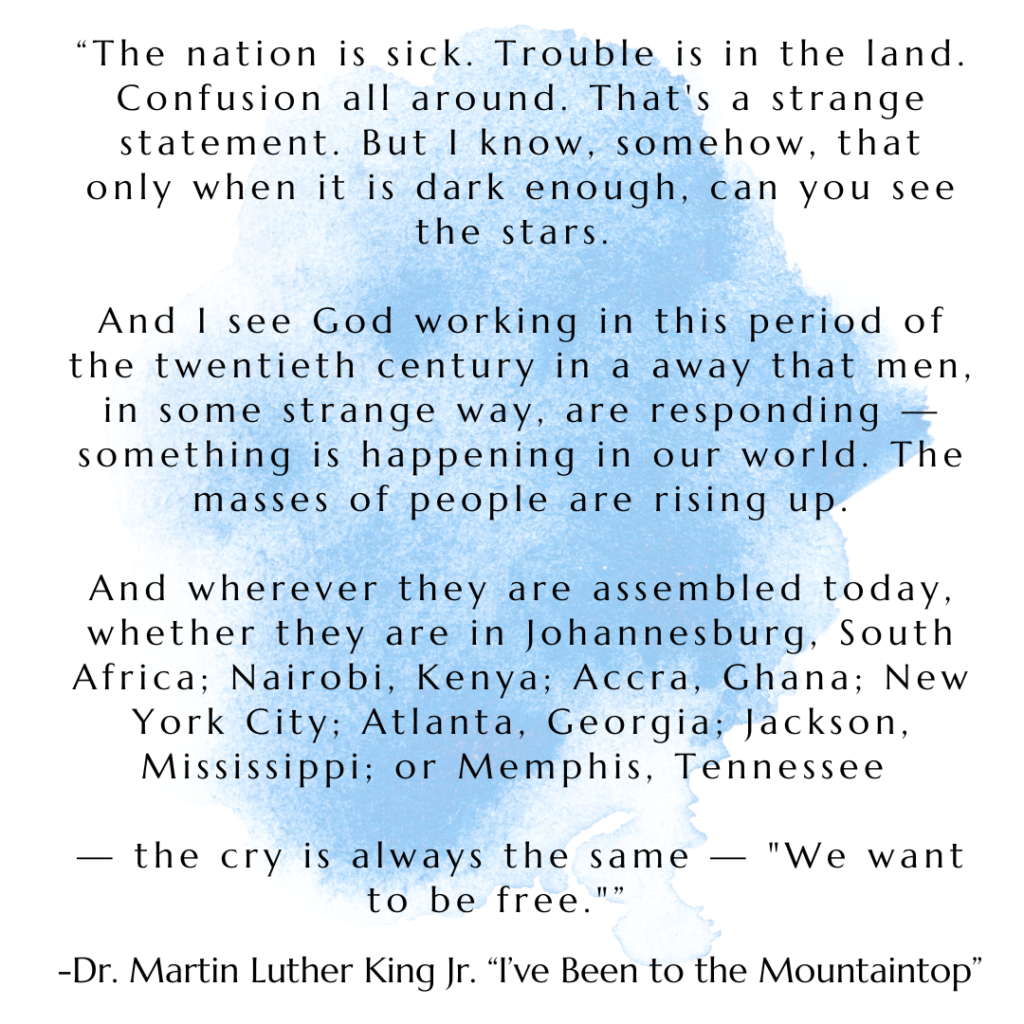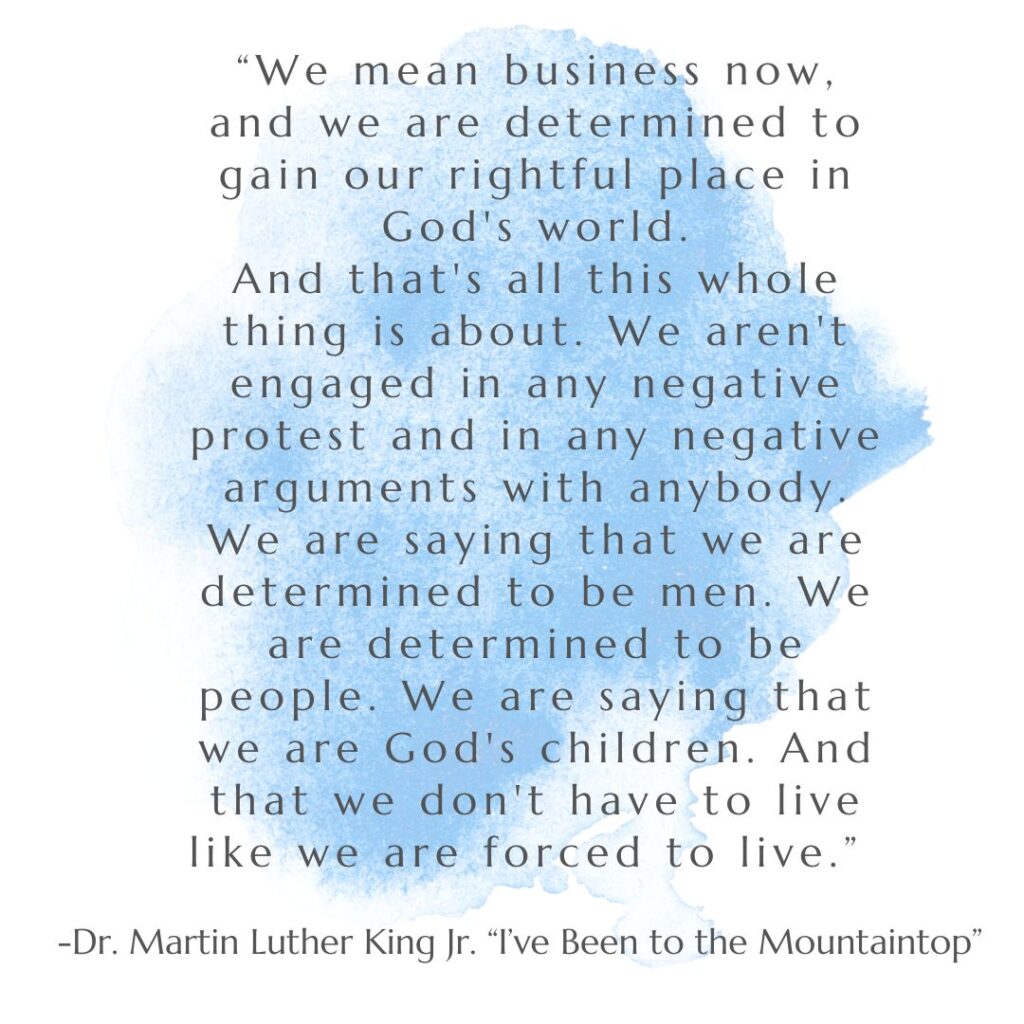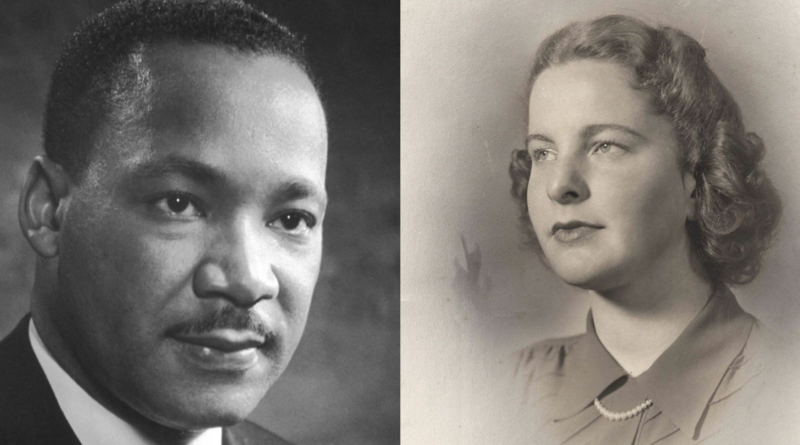The ‘Little Girl’ From Westchester’s White Plains High School Mentioned in MLK’s Final Speech ‘I’ve Been to the Mountaintop”
Nineteen fifty-eight was a rough year for Dr. Martin Luther King Jr. He was subject to an arrest and a conviction and later stabbed with a letter opener by what he described as a “demented woman” during a visit to New York. This was only two years after his house had been bombed while his wife, newborn, and neighbor were inside.
Doctors told Dr. King and reporters that the stabbing almost punctured his aorta and that he would have died if he had done something as trivial as sneezing. Still, Dr. King later said he bore no “bitterness” or “resentment” toward his assailant, Izola Ware Curry, the 42-year-old well-dressed black woman who was found to be carrying a gun at the time.
The Martin Luther King Jr. Research and Education Institute states that Curry was mentally disturbed and blamed the civil rights leaders for causing her to lose her job and forcing her to “change religions,” in addition to “boycotting” and “torturing” her. She also accused him of being associated with the Communist Party.
Letters of well wishes poured into Harlem Hospital, where Dr. King was recovering from his wounds. But it wasn’t the letters from then-President Dwight D. Eisenhower or Vice President Richard Nixon that brought him comfort during his hospital stay. Nor were letters from friends or the day’s celebrities like Harry Belafonte or Lena Horne. Dr. King said he forgot what all those letters said.
It was a letter from “a little girl, a young girl” from White Plains, NY. Dr. King mentioned her in his iconic final speech, “I’ve Been to the Mountaintop,” saying that the letter from the white ninth-grade student from White Plains High School struck a chord with him that would with the simple phrase “I’m so happy you didn’t sneeze.”
“But there was another letter that came from a little girl, a young girl who was a student at the White Plains High School. And I looked at that letter, and I’ll never forget it. It said simply, “Dear Dr. King: I am a ninth-grade student at the White Plains High School.” She said, “While it should not matter, I would like to mention that I am a white girl. I read in the paper of your misfortune, and of your suffering. And I read that if you had sneezed, you would have died. And I’m simply writing you to say that I’m so happy that you didn’t sneeze.”
Decades later, the identity of that “little girl” was discovered not to be a little girl at all but rather a Westchester Woman from Pleasantville.
The Wall Street Journal found that Dr. King must have misidentified the letter, one of 1,800 that he received, in his unprepared speech. White Plains Youth Bureau Executive Director Frank Williams Jr., retired White Plains City School District Clerk Michele Shoenfeld, and Westchester historian Andy Bass had tried to track down the student and letter for years.
The Wall Street Journal reported in 2018 that they had found a letter from 37-year-old Jean Kepler of Pleasantville, a white mother and civil rights activist, that mentioned the sneeze and that this was likely the letter Dr. King referred to in his speech.
In her letter, the Pleasantville mom wrote, “The lady who did this to you must have been very confused and sick in her mind and I feel sure that you are the kind of a big person who can forgive her—even for this.”
She went on to acknowledge that “As we get older we tend to lose much of our ideals” and “I admit I have lost them in many areas – but racial and religious equality is still something I want to fight for.” Her letter ended with, “I’m so glad you didn’t sneeze!”
Kepler’s daughter, Kendel Yackeren, told The Wall Street Journal that her mother wrote letters to those she agreed and disagreed with as a means of political activism. She was also passionate about volunteering for civil rights causes.
Yackersen said that her mother never mentioned her interaction with Dr. King and that she was unaware of whether or not her mother knew that she had made an impact on his iconic speech, and thus history, with her letter.
“I love knowing this,” Yackeren told the media outlet. “And she would have, too.”
WSJ video on Kepler’s story
Toward the end of Dr. King’s “I’ve Been to the Mountaintop” speech, he says, “I too am happy that I didn’t sneeze.” He goes on to repeat the phrase “If I had sneezed” multiple times to highlight all of the great things he wouldn’t have been able to accomplish if he had sneezed and passed away. Those things were many and quite impactful, including The Civil Rights Act of 1964, which outlaws discrimination based on race, color, sex, or nation of origin.
Dr. King’s speech also indirectly highlights the importance of Kepler’s pledge to continue fighting for human dignity and the importance of standing up instead of looking away. Today, there are many still fighting for these things.
The “I’ve Been to the Mountaintop” speech was delivered to striking sanitation workers in Memphis, Tennesee on April 3, 1968. The words of the 43-minute speech, which was Dr. King’s last, seem to ring just as loud and true today as they did then.

People all over the world today are rising up. Thousands marched on the White House and in Jerusalem, calling for an end to war and a cease-fire in Gaza. Nearly 400 labor strikes occurred in the U.S. in 2023, where over 500,000 workers and organizers fought for the wages and conditions they deserved. An effort that has yielded incredible gains in wages for workers, including pay increases of up to 46 percent over the next few years. According to CNBC, experts say that more labor strikes are expected in the future.

This isn’t unique to the U.S. Wives in Russia are standing up for their husbands who have been sent to war against Ukraine; farmers in Germany are challenging cuts to subsidies, while protests in France have erupted to dispute anti-semitism, police brutality, and pension reform.
It seems that, like Kepler, the people are still continuing to take action and the message of the people of Dr. King’s time is the same as those advocating for their rights today.
“God sent us by here, to say to you that you’re not treating his children right. And we’ve come by here to ask you to make the first item on your agenda fair treatment, where God’s children are concerned.”
– Dr. Martin Luther King Jr. “I’ve Been to the Mountaintop.”

